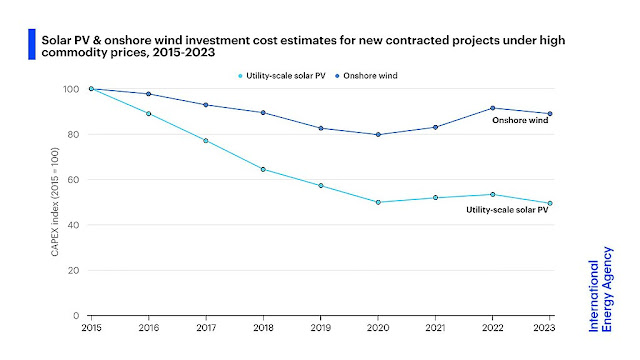The Evolution of Solar PV in 2023: A Global Perspective
Introduction
The year 2023 has brought remarkable advancements in the field of solar photovoltaic (PV) technology, revolutionizing the global energy landscape. From enhanced efficiency to increased affordability, solar PV has emerged as a pivotal player in the transition towards a sustainable and renewable future. This article aims to explore the latest developments and trends surrounding solar PV around the world in 2023.
1. **P** - Progress in Solar PV Technology
In recent years, significant progress has been made in solar PV technology, leading to improved performance and increased adoption. Innovations such as multi-junction cells, perovskite solar cells, and bifacial panels have pushed the boundaries of efficiency and energy generation. The integration of artificial intelligence (AI) and machine learning algorithms has further enhanced solar PV systems' operational efficiency, allowing for real-time optimization and monitoring.
2. **E** - Expansion of Solar PV Capacity
The global solar PV capacity has experienced exponential growth in 2023, fueled by supportive policies, declining costs, and increasing environmental awareness. Several countries have made substantial investments in solar PV installations, bolstering their renewable energy portfolios. China, the United States, India, and Germany have emerged as leaders in solar PV deployment, leveraging their abundant solar resources and commitment to sustainable development.
3. **E** - Environmental Impact and Benefits
Solar PV has gained prominence due to its positive environmental impact and numerous benefits. By harnessing sunlight to produce electricity, solar PV systems reduce greenhouse gas emissions, mitigating the adverse effects of climate change. The decentralized nature of solar PV installations enables energy independence, particularly in remote and underserved areas. Moreover, solar PV plays a vital role in job creation, fostering economic growth, and promoting energy security.
4. **L** - Localized Challenges and Solutions
While the adoption of solar PV has witnessed remarkable growth globally, various localized challenges persist. One such challenge is the intermittency of solar power generation due to weather conditions. However, advancements in energy storage technologies, such as battery systems and grid integration, are addressing this concern by enabling the storage and distribution of excess solar energy. Additionally, policy frameworks promoting net metering, feed-in tariffs, and regulatory support have facilitated solar PV deployment and addressed barriers to entry.
5. **L** - Looming Trends and Future Prospects
Looking ahead, several key trends and future prospects shape the solar PV landscape in 2023 and beyond. The integration of solar PV with other renewable energy sources, such as wind and hydropower, through hybrid systems, offers a comprehensive and sustainable energy solution. Moreover, the emergence of building-integrated photovoltaics (BIPV) holds immense potential for incorporating solar PV into architectural designs seamlessly. Furthermore, research and development efforts continue to drive innovation, aiming to enhance the efficiency and affordability of solar PV technology.
Conclusion
The year 2023 has witnessed remarkable progress and significant milestones in the realm of solar PV technology. With advancements in efficiency, expanding capacities, and growing global adoption, solar PV has solidified its position as a pivotal player in the pursuit of clean and sustainable energy. As the world continues to shift towards renewable energy sources, solar PV stands at the forefront, illuminating the path to a greener and more sustainable future for generations to come.




Comments
Post a Comment
Please respect others users and refrain from posting racist, abusive, pornographic or spam-related comments. All such comments will be deleted and the poster may be reported to the relevant body.